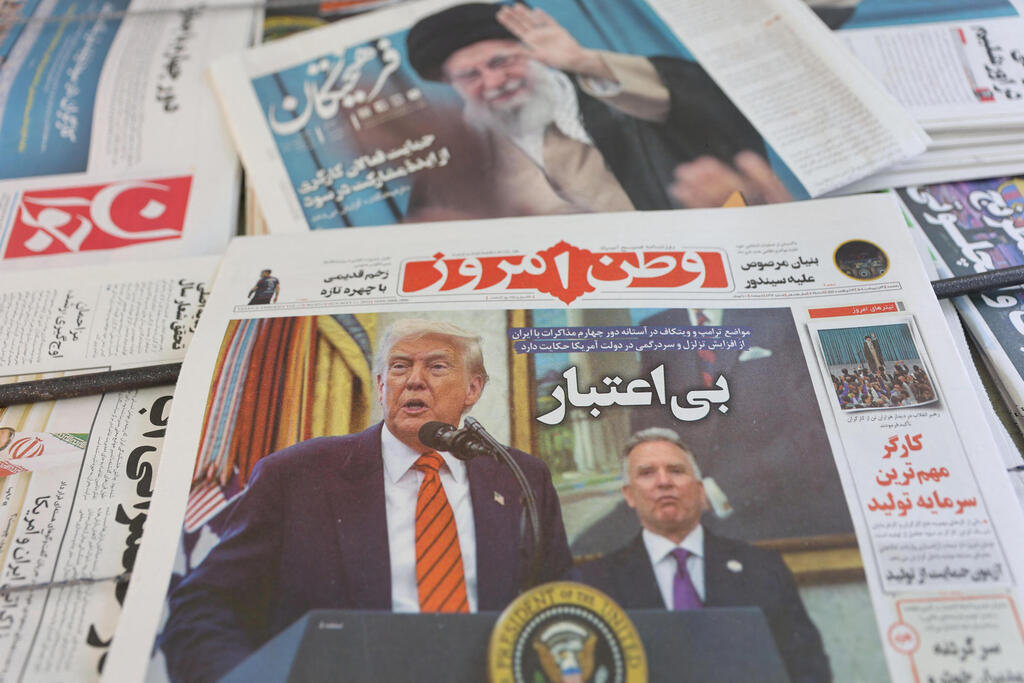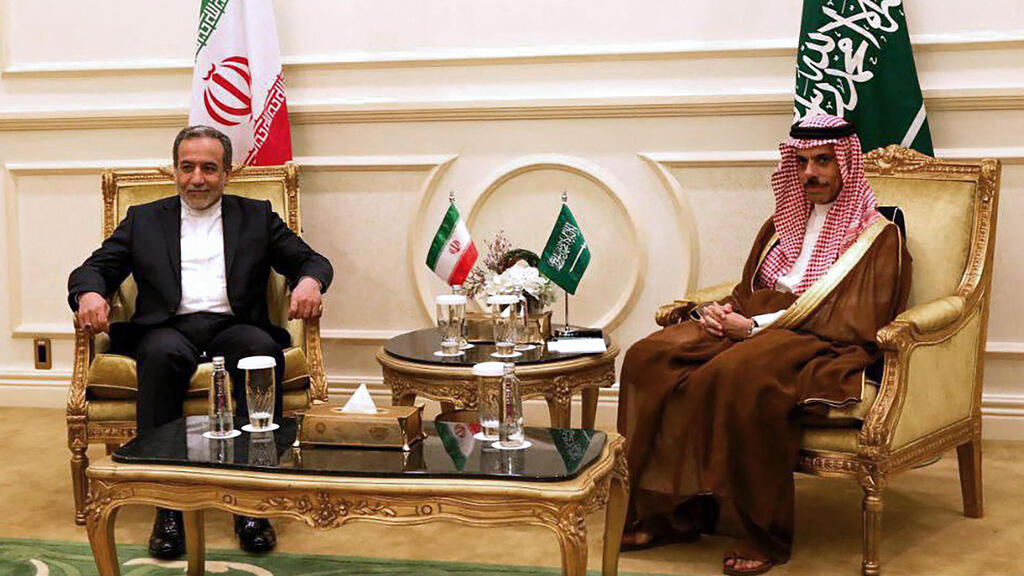The fourth round of nuclear negotiations between Iran and the United States began Sunday afternoon in Muscat, Oman, with deep divisions looming over the scope and goals of a potential agreement. At the heart of the disagreement is whether any new deal would merely limit Iran’s nuclear program or require the complete dismantling of its uranium enrichment capabilities.
Shortly before the talks resumed, Iranian officials threatened to walk away from the negotiations. A member of Iran’s delegation told Hezbollah-affiliated Lebanese outlet Al-Mayadeen that “Iran is prepared to reassure all parties that its nuclear program is for peaceful purposes only, but if the other side deviates from the agreed framework, we will not continue negotiations.”
2 View gallery


Witkoff and Trump on the cover of a newspaper in Iran ahead of another round of nuclear talks
(Photo:: Majid Asgaripour/WANA (West Asia News Agency) via Reuters)
Iranian sources also told Qatar-based Al-Araby TV that the U.S. has hardened its position on uranium enrichment, casting a shadow over the new round of talks. They pointed specifically to comments by U.S. envoy Steve Witkoff, who reiterated Washington’s “red line” that Iran must dismantle all enrichment facilities to eliminate any pathway to nuclear weapons.
Iranian Foreign Minister Abbas Araghchi, who is expected to hold a brief, indirect meeting with Witkoff during the Oman talks, criticized the U.S. stance as inconsistent. While Witkoff last month signaled that the U.S. might tolerate enrichment at low levels (up to 3.67%), he later reversed course, insisting on total dismantlement. U.S. Secretary of State Marco Rubio added that Washington may allow Iran to import low-enriched uranium under international supervision for civilian energy use—but not enrich domestically.
Trump: We'll blow up the nuclear facilities in a nice way, or in a bad way
(Video: YouTube)
“Iran’s position is clear,” Araghchi said Sunday morning before arriving in Muscat. “Our nuclear program is legal, peaceful and under the supervision of the International Atomic Energy Agency. Uranium enrichment is a hard-won national achievement and is not up for negotiation. We are open to greater transparency and hope the other side acts rationally.”
Despite repeated denials by Iran, Western intelligence agencies have long accused Tehran of concealing military dimensions of its nuclear program. Iran continues to assert—falsely—that it has pursued nuclear technology solely for civilian energy purposes, and has consistently refused to relinquish its self-declared “nuclear rights,” including domestic enrichment.
Get the Ynetnews app on your smartphone: Google Play: https://bit.ly/4eJ37pE | Apple App Store: https://bit.ly/3ZL7iNv
That stance was a core issue in the 2015 Joint Comprehensive Plan of Action (JCPOA), which allowed Iran to operate thousands of centrifuges and enrich uranium to 3.67%, far below the 90% weapons-grade level. The agreement was abandoned in 2018 by then-President Donald Trump, under pressure from Israeli Prime Minister Benjamin Netanyahu, who called it "the worst deal in history." Trump reinstated sweeping U.S. sanctions that have crippled Iran’s economy.
2 View gallery


Iranian Foreign Minister Abbas Araghchi with Saudi Foreign Minister Faisal bin Farhan in Riyadh on May 10
(Photo: AFP / IRANIAN FOREIGN MINISTRY / HANDOUT)
The current talks are reportedly based on a framework similar to the 2015 agreement, though Iran’s nuclear program has advanced significantly since the U.S. withdrawal. Iran has openly violated its commitments, enriching uranium to 60% and accumulating stockpiles that experts believe could allow it to reach weapons-grade enrichment (90%) within days, if it so chooses. Developing a functional nuclear warhead would take longer, but analysts warn Iran could quickly produce a crude device.
Trump has reportedly given negotiators a two-month deadline. Should the talks fail, he has repeatedly warned that military action—potentially led by the U.S. and Israel—remains on the table.



